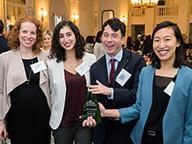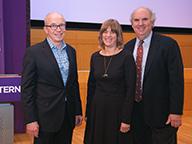Faculty News
—
Professor Lawrence White shares his views on the recent jobs report
—

Excerpt from Knowledge @ Wharton on Sirius XM -- "I see it as a very favorable strong report. Adding 164,000 jobs, that ain't chopped liver as my grandmother might have said, and the unemployment rate down to 3.9 percent...[the] lowest in almost 20 years, since the year 2000. The one puzzling thing is that the labor force participation rate went down. We would have expected with tighter labor markets for that participation rate to go up as employers reach deeper into the pool of the not-in-the-labor-force and try to train or accommodate or find employees in that labor group."
Faculty News
—

Excerpt from Knowledge @ Wharton on Sirius XM -- "I see it as a very favorable strong report. Adding 164,000 jobs, that ain't chopped liver as my grandmother might have said, and the unemployment rate down to 3.9 percent...[the] lowest in almost 20 years, since the year 2000. The one puzzling thing is that the labor force participation rate went down. We would have expected with tighter labor markets for that participation rate to go up as employers reach deeper into the pool of the not-in-the-labor-force and try to train or accommodate or find employees in that labor group."



















